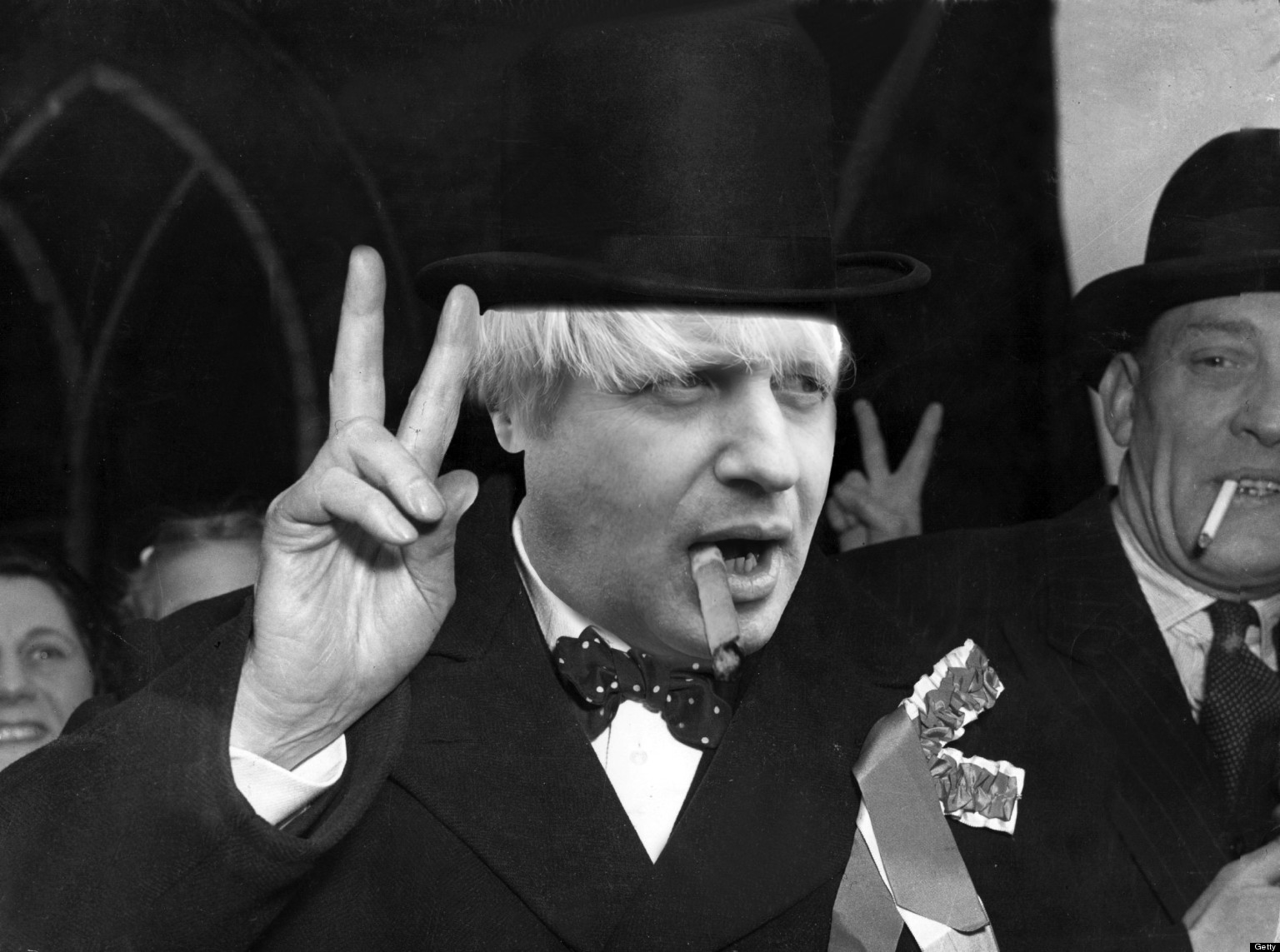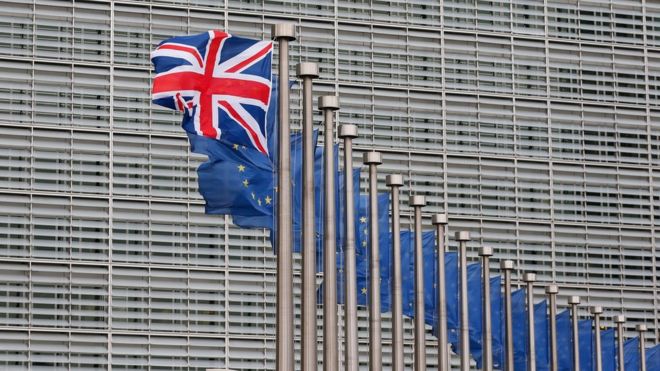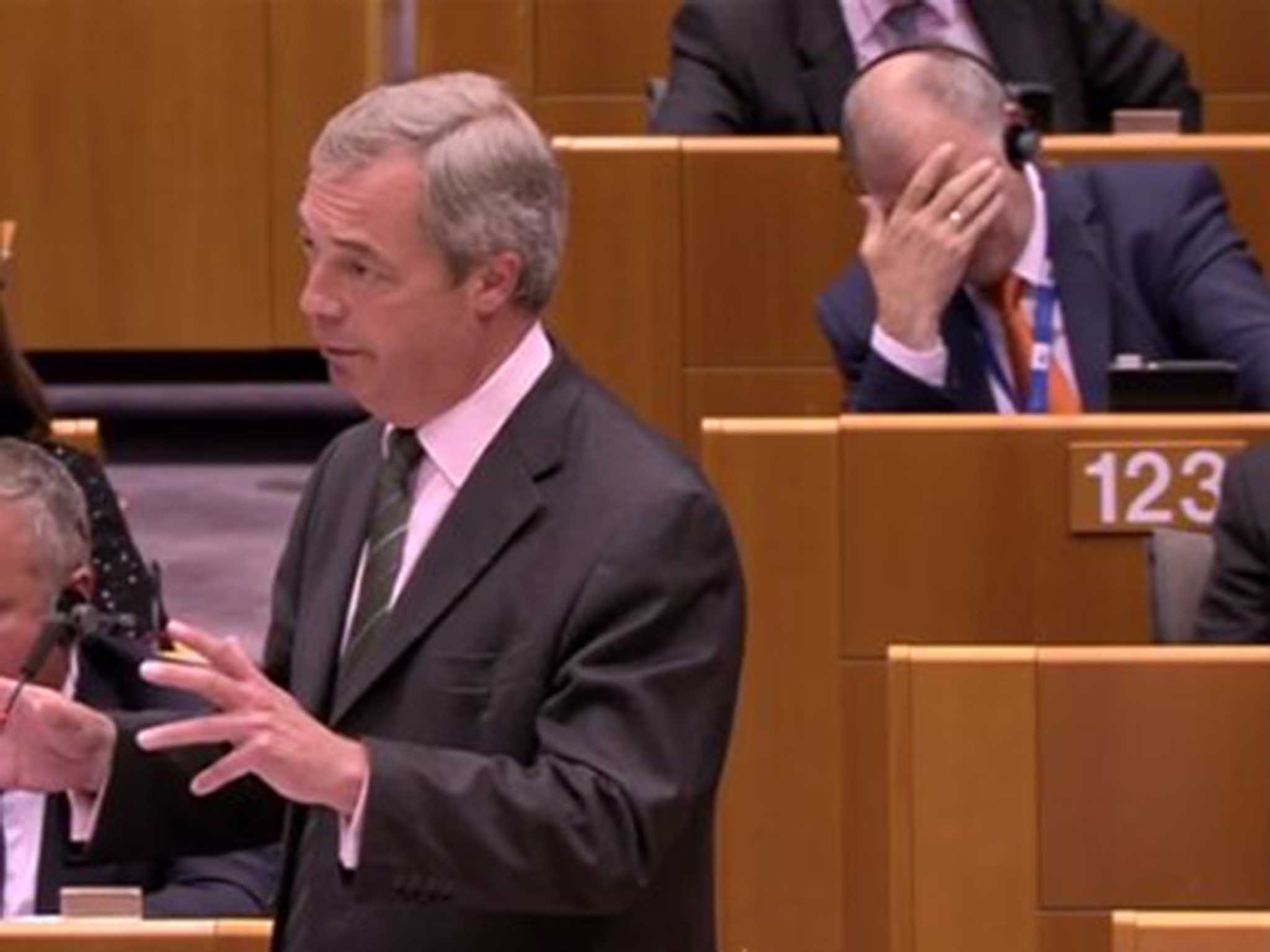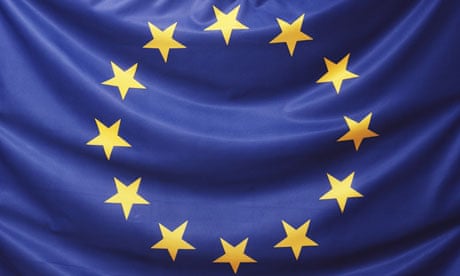One of the most frustrating things about the EU Referendum is that it is hard to argue for the status quo. It’s one of those “you don’t know what you’ve got till it’s gone” situations. But, let’s have a go, anyway. Unlike my
previous Brexit post which went a little viral, this one is not trying to be unbiased.
1 Economics
Economics isn’t as ‘pure’ a science as maths or physics or even climate change, so it’s natural that people don’t trust economists as much as, say,
your friendly neighbourhood scientific genius. However, when
90% of economists agree on a prediction, it’s worth paying attention. They might disagree about how bad the economic impact of Brexit would be on Britain, but they all agree that there would be a significant cost. The British economy would shrink, by between 0.5% and 3%.
The Economist predicts a rise in unemployment of 380,000 people by 2018.
For comparison, the 2008-13 recession saw the British economy shrink by 6% and unemployment rise by about 1 million people. So the best guess for the short term impact of Brexit is that it would be about half as bad as the 2008 financial crisis - not the end of the world. What happens after that is pretty much anyone’s guess.
Some of the very few pro-Brexit economists believe that it would
hurt Europe more than Britain, so there could be job losses and economic plight in Europe. I have to admit, I’m not entirely clear on how this is an argument for Brexit – in a vote between “no additional economic harm” and “economic harm for us, or, if we’re lucky, for others”, the second option does not hold all that much appeal whichever way you cut it.
That’s just the immediate impact. In the longer term, no one knows. Some pro-Brexit economists believe a long rise, but simulations are impossible: everything depends on how well Britain is managed and what happens elsewhere in the world and what sort of deals get negotiated.
One of the effects of this immediate, fairly certain Brexit recession? The UK government would suffer a tax income reduction (and increase in jobseekers’ cost) that equals or exceeds the savings it would generate from not being a member of the EU anymore.
All those promises about using the money the UK contributes to the EU now to prop up the NHS, Make Britain Great Again, replace the lost Regional Development income, keep funding British farmers? They’re demonstrably wrong, as the UK government would, by the reckoning of the vast majority of predictions, lose more money than it’d save.
So, in the short to medium term, Brexit would be a punch in our economic face. Even prominent Leave supporters and funders acknowledge this. Some even celebrate it: Peter Hargreaves, a billionnaire who has put millions into the Leave Campaign, is so excited about the prospect that he
compared it with Dunkirk (the infamous military retreat Britain suffered early in WW2):
"It would be the biggest stimulus to get our butts in gear that we have ever had. It will be like Dunkirk again. We will get out there and we will be become incredibly successful because we will be insecure again. And insecurity is fantastic.”
2 Leadership
 |
| Churchill? Methinks Not. |
Let’s, for the sake of argument, agree with him. Let’s see Brexit as an opportunity that could enable the UK’s fortunes to soar in the long term. It’s not entirely unrealistic. On average, UK people already work more hours than Germans, for lower wages. So there’s obviously a different philosophy in place in Britain – wages could sink lower, hours could increase, and
the Amazon model of employee performance management could become universally adopted among employers and finally kick our lazy butts in gear.
But, and it’s a huge “but”, where is the Winston Churchill of the Dunkirk metaphor? Would anyone honestly compare Cameron, or Johnson, or Gove, or Duncan-Smith, or May, or Corbyn, or even Farage with Churchill?
In what universe?
British people may be hard working, but this isn’t WWII: the survival of Britain is not at stake (no matter what Leavers might claim). This referendum will not be decided by die-hard Leavers or Remainers – it’ll be decided by the previously undecided voters. When the recession starts to bite, when a few hundred thousand people find themselves out of work a couple of years from now, when big multinational corporations pull out of the UK, do you think any of the current crop of politicians will be able to rally and motivate the population to pull through and turn the UK into a fiercely competitive tiger economy? Which of the politicians do you believe will be that leader – I’d really love to know.
My point is this: without a great, effective, competent and trusted leader, the Brexit recession will lead to political instability in the UK, and that in turn will make it much more likely that the economy will stay in the doldrums than that it should recover. With the current crop of politicians, the economic punch to the face could turn into a knock-out blow, rather than the punch that enrages the UK into a ferocious comeback.
3 Stability
Someone famously asked
“What is the problem to which the EU is the solution?”
The answer is “The vulnerability of individual nation states to become politically unstable”
It’s hard to believe that Spain and Portugal were dictatorships in living memory (though not within my own lifetime). I do remember Romania, Bulgaria, Yugoslavia, Czechoslovakia, Poland and East Germany being dictatorships. Watching as Poland’s current government is drifting towards authoritarianism is scary – and watching the EU push back against that is actually a big comfort.
 |
| The Troubles |
This is an argument British people don’t really believe applies to them. Britain has been fairly stable for centuries, so there is a deep-seated belief that instability and political conflagrations are something that happens elsewhere, to other nations. It could not happen here, could it?
 |
| 2011 Riots |
Unfortunately, I think that’s an unfounded sense of superiority. It can and sometimes does happen to the most stable of nations. In the UK, The Troubles in Northern Ireland are not that far ago. They were in decline when I was a child, but people who lived through them in the 1970s and 80s may tell you that, at times, it did not seem as if a collapse of order was inconceivable. Similarly, the 2011 riots fizzled out quickly enough, but surely I can’t have been the only one watching the news open-mouthed, horrified, and beset with an uneasy sense that we’d be in real trouble if they’d continued much longer.
Look across the Atlantic, as Donald Trump is now one of only two candidates with a shot at the White House. Just because a democracy has been working for a hundred years or more does not mean it can never lead to disaster.
The EU is really a checks-and-balances operation, and sometimes it acts as a check and balance to its member states. As I mentioned in a
previous Brexit blog post, it’s the ultimate centrist institution. The big decisions only come into effect when all member countries agree – and that means the EU is a beast of compromise, as there will never be a scenario wherein all member states lean to the left or to the right simultaneously.
Stability may not be exciting, and it slows down change (which is frustrating if you want to make big changes to society), but it can be a real benefit. Don’t undervalue it. 30p a day is pretty good value for that.
4 Clout
The EU is slowly establishing itself as a superpower. After the collapse of the Soviet Union, it looked like America was going to be the sole superpower for a while. Now, the balance of power has shifted, and the superpowers are America, China, the EU and Russia. (Putin is staying uncharacteristically quiet, because he very obviously wants Brexit to happen. He’s keen for the EU to collapse, resenting its rise and eastward expansion, so a Brexit would suit him nicely).
While there are lots of countries in the EU, when it comes to negotiations and diplomacy, most of the decision making is heavily influenced by the big three – Germany, France and the UK. Whether it’s negotiating with Iran about its nuclear ambitions, or agreeing trade deals, or responding to the Arab Spring or the refugee crisis – the EU amplifies the UK’s clout in the world enormously. (If you think some of the global events are all being mishandled, you’re not the only one, but the handling of all these is more or less in line with the UK’s policies and wishes…)
Britain’s membership of NATO and its nuclear arsenal may be significant, but they will not guarantee a seat at the table in discussions about world events. Geopolitically, Turkey is probably more important to NATO right now than Britain. As a member of the EU, the UK has almost a third of the clout of a superpower. On its own, it’d have roughly the same influence on global events as Canada, with or without Trident.
5 Idealism
Of course the EU is partially built on idealism. I happen to share the ideal of a world (or at least a Europe) without borders but even if you don’t, there are bound to be some European ideals that you do believe in.
Culture: the EU is about multiculturalism (with exchange projects like Erasmus to expose people to other European cultures) and about local culture (funding the arts, supporting language & heritage preservation).
Education: thanks to the conditions created by the EU, most higher education systems in Europe have adopted the British qualifications. Bachelor degrees and Masters degrees are now the norm across most of Europe! Come on Britain, YOU’VE WON. Most of Europe is following in your footsteps when it comes to the way universities operate. Also, the EU supports and funds education and research initiatives.
 |
| Stilton |
Protection of Heritage Produce: It might have all started with champagne, but these days there are dozens of British small and medium sized companies that flourish because their regional produce is protected. From Stilton to Cornish Pasties – various British regions have become valuable brands.
Environment & animal rights: The EU could and should do more to protect the environment, wildlife and animal welfare. But even so, air quality standards, water quality standards, the banning of neonicotinoid pesticides for the protection of bees, banning animal testing for cosmetic purposes, improving the conditions for factory farmed pigs and chickens… they might not always go far enough, but there are significant achievements that affect the environment and animals across Europe. There are certainly ongoing efforts to keep improving environmental protection and animal welfare.
Privacy and Consumer Rights: British people feel less protective of their (digital) privacy than Germans, but most will recognise that Facebook, Whatsapp, Snapchat etc. have a lot of sensitive information about all of us. The EU does work to protect people’s rights, including privacy. As for Consumer Rights, as far as I know any electrical product sold in the EU has to have at least two years manufacturer’s warranty, which is why crappy junk products are sold by scamsters from the back of vans, rather than on the high street. European air passengers are the best protected in the world (in case of cancellation or delays), European airspace is the safest in the world (there are lists of airlines and individual planes owned by certain airlines which are not allowed to fly into European skies), and, much as in-depth labelling of allergens might be a headache for small businesses, European food labelling is among the best in the world, giving consumers the power to make informed choices.
6 Potential
Maybe you’re not planning to move abroad, or to retire in a warmer climate. Maybe you don’t have children, or your children won’t ever want to study or work abroad. Maybe Europe is of as little interest to you as Argentina, or Botswana, or Antarctica.
However, many people quite would like to head somewhere warmer when they grow old. Children and young people have more potential within the EU than outside: university education is free in some European countries, and many courses in continental Europe are now taught in English, so young people don’t even need to be fluent in a foreign language to save £30,000 of tuition fees. And, in an increasingly globalised world, having the right to live and work in many countries automatically is actually a pretty massive opportunity. An open door is open in both ways. I believe there is value in preserving and maximising one’s potential.
7 Scab UK?
The EU is not just a European Free Trade Union. In some ways, it is also a European Trade Union, with a membership that's made up of countries, not employees. It uses collective bargaining power to negotiate with outsiders. It brings in regulations to protect the interests of its member nations and citizens. That stuff Leave Campaigners decry as protectionism? That's the foundation of what trade unions do: protect the (perceived) interests of their members.
That doesn't mean it's great, but the Leave Campaign's position can be seen as "let's be a scab: the UK might benefit (at the expense of other EU members)".
The problem with that sort of approach is that, if the Leavers turn out to be right (which I seriously doubt), then this could lead to a race to the bottom. If the UK does well out of a bonfire of regulations and by becoming a sort of Wild West for businesses and capitalist barons, then chances are, other European countries will follow the UK's lead. If the competitive advantages are as big as the Leavers claim (and, again, they are almost certainly not), then the UK would be leading the charge into lower protection for workers, natural environments, consumers... basically, all the stuff that was not great about the Industrial Revolution and its robber barons, all the stuff that makes China not just economically successful but also an inhumane mess (where people in cities have to wear breathing masks, employees are driven to suicide by working practices, where species go extinct and entire ecosystems die)... all of that could be headed our way.
So, do you see the UK as a scab?
8 Insurance
Some people buy optional insurance, others don’t. To me, the EU has always seemed to be the biggest insurance safety net that I have.
If I get sick or tired of Britain or too depressed by the Welsh weather, I can leave and start a new life elsewhere without a problem.
If the British economy goes to pots and I lose my job, I can leave and start a new life elsewhere without a problem.
If some cataclysmic events occur (Chernobyl-style reactor meltdowns, tsunamis, intemperate climate change, fracking-related poisoning of drinking water, an invasion of spiders, the reintroduction of the military draft, a UKIP general election victory), I can leave and start a new life elsewhere without a problem.
To me, 30p a day seems a pretty good bargain for that sort of insurance.
9 Questions to ask of the Leave Campaign
The pro-Remain rhetoric, spin and fearmongering are annoying and embarrassing. The pro-Leave lies, meanwhile, are stomach-churning.
But, should you encounter Leave campaigners, ask them some questions.
- They complain of EU over-regulation. Ask them for a list of the regulations they intend to scrap.
- They promise how they’d spend the money Britain would save if it left the EU. Ask them where they’d get the money from if Britain entered a recession.
- They complain the EU is undemocratic. Ask them whether they voted in the last European election. Ask them whether they personally voted for any of the members of the House of Lords, or the Privy Council, or High Court judges, or any of the ministers in the current cabinet. Ask them whether the UK is undemocratic if its government has policies that they didn’t personally agree with.
- They complain that immigrants steal jobs. Ask them how the UK has the lowest unemployment rate in Europe.
- They complain that immigrants are to blame for the housing crisis and put strains on services. Ask them why the UK government didn’t build more houses, or increase service provisions. (After all, immigration has been happening for years – is it the immigrants’ fault that UK governments haven’t been managing supply properly? Immigrants pay more into the UK in taxes than they take out in public services – without them, austerity would have to be more austere than it already is! Britain imports profitable working people and exports loss-making old retirees, in terms of public service / tax balances!)
- They complain that the UK has lost sovereignty. (It hasn’t, according to law professors / experts). Ask them why they don’t want any say at the European level.
- Ask them to explain to you in detail not what is wrong with the EU, but what they believe the UK’s post-Brexit arrangement with Europe and the world will be, and why.
- Ask them who they believe will be in power in Downing Street for the next few years, and whether they are confident that Britain will be sufficiently well-managed by its governments to avoid economic stagnation, and why they believe so.
Compare the answers you get from different Leave campaigners. Do they match? Do they sound convincing? Which ones do you believe in?
10 If Remain Wins
All of the above is necessarily talking about existing achievements and policies of the EU. But, for a moment, let’s daydream about the potential for the future.
It’s Friday. The results are in. “Remain” has won, but over 40% of votes were for “Leave”. David Cameron breathes a huge sigh of relief as the nation sides with the least worst option in spite of his
staggering incompetence in how he’s been handling the EU. (Meanwhile, Britain First alleges vote rigging, Nigel Farage and Katie Hopkins imply that the referendum would have had a different turnout if Jo Cox had not been assassinated / the government had played fair / British voters weren't all mindless sheeple, and proceed to whine like crybabies).
So, what next? Well, if David Cameron were a competent leader, here’s what he would do:
- He’d take the results back to the EU and point out that Britain came to within a whisker of leaving.
- He’d not put the UK’s relationship with the EU back on the agenda, but instead focus on EU reform, to benefit not (just) Britain, but people and nations across Europe.
- He’d point out that the EU has a problem of rising extremism, and that the problem is growing in violence and danger, which requires addressing, not just with rhetoric and lots of educated people sitting around a room looking baffled and despairing, but with looking at how the EU should be reshaped to be less abstract and more palatable to people across Europe.
- One of the EU’s problems is that there are many people making a living coming up with new regulations and adding to the bureaucracy. The first thing that should change is that some of the existing committees and groups should have their mission changed to scrap and condense regulations, rather than come up with new ones. (No new people should be hired – there simply should be a reallocation of existing EU resources to trimming, rather than growing, the regulations)
- A new EU law / directive / whatever should be proposed (and passed) which demands that any subsequent new regulations and laws must undergo iterative testing before they are approved EU-wide. I.e. designated “pilot areas”, one in each member country, should apply any new law. Then, someone should assess in each area what worked, what didn’t, how it was enforced (if at all) and what difference it made. Only once there is demonstrable evidence that there’s a difference, that the law works, that it has benefit, should it pass through the EU parliament for a vote.
- Cameron should propose a complete restructuring of the EU, to make it more transparent, democratic and efficient. The negotiations to restructure it would last about 10-15 years and far exceed his time in office, but the key thing is that EU reform should be a long-term objective on the agenda of Britain (and the EU).
- There should be some changes to secondary education in the UK. Every pupil should have the opportunity (and be very much encouraged) to learn two foreign languages, and European ones (especially French) should be promoted. A scheme to promote language courses to be provided to university students studying any subject should also be conceived. Why? Eurocrat jobs require as essential requirement fluency in two languages and some competence in a third. I believe one of the fluency languages must be either French or English. One of the reasons Britain doesn’t have as strong a voice inside the European Commission as it could is a lack of people who have good foreign language skills. Britain is a leading voice on the European Council, but the European Commission could really benefit from more British perspectives being present.
- Finally, the migrant question. Britain could take a number of approaches. For example, the UK could negotiate with the EU a temporary moratorium on free movement EU migration to the UK in return for offering to take as many Syrian refugees as there were EU immigrants last year. It’s quite possible the EU might be open to such a deal. Alternatively and somewhat less nobly, the UK could implement immigration-reducing policies as outlined in my last ranty blog post...
- Oh, and he really needs to start working on solutions to the disgusting nature of political discourse (and debates about immigration) in the UK.
Whatever the outcome of the referendum, there's work ahead. If the next ten years aren't spent negotiating Brexit, then there should be initiatives to improve the EU and make it more accountable, representative and palatable to its people. Because fundamentally, the principle of working together with other countries, trading freely, protecting consumers and human rights and the environment, and stabilising nation states is actually pretty damn sound, whatever flaws currently beset the implementation.















